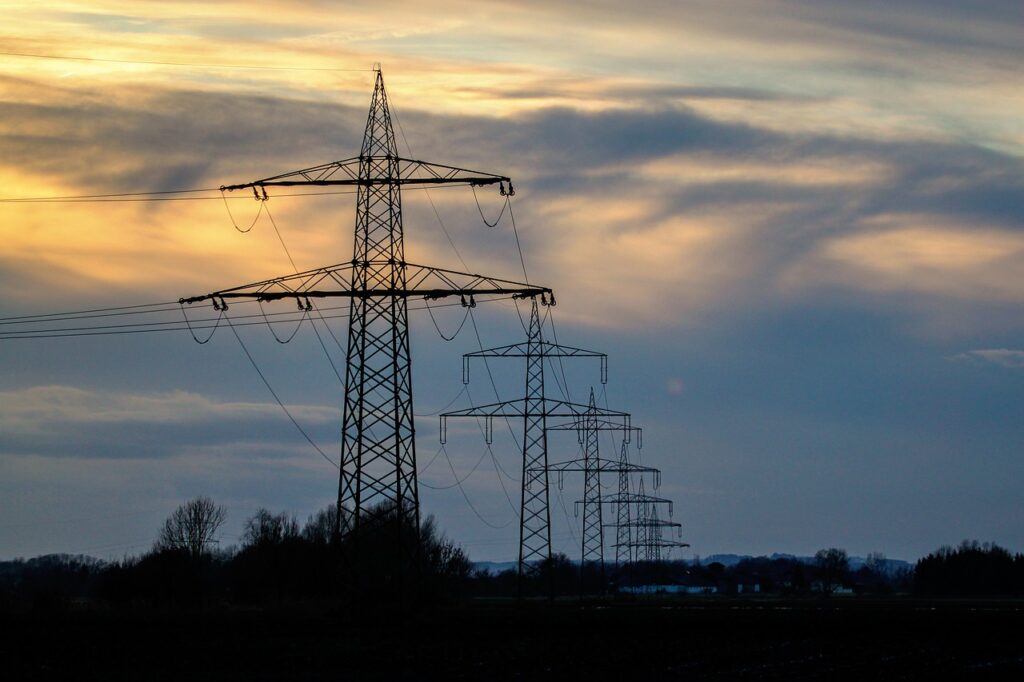Markus Krebber, CEO of the energy company RWE, warns that Germany is facing a power shortage in the medium term. This could lead to companies and jobs leaving the country. He stresses that Germany’s prosperity is based on strong industry. A shortage of energy leads to high prices and thus endangers the competitiveness of the industrial location.
Germany’s energy crisis threatens industry and competitiveness: RWE boss sounds the alarm
Krebber already recognises the first signs of deindustrialisation. In an interview with the magazine “Focus”, the RWE boss makes it clear that Germany has a serious problem as an industrial location (Focus. 01.06.23). There is not enough energy available to meet demand. This energy gap leads to the high prices and justified concerns about competitiveness.
There is concern about the availability of electricity. The German government is planning to switch electricity production in Germany completely to renewable energies. By 2030, 80 percent of electricity is to come from the sun, wind and other renewable sources, and by 2035 all electricity is to come from renewable sources.

At the same time, Germany is apparently increasingly dependent on electricity imports. Since the shutdown of the last three nuclear power plants in April, the country has imported more electricity from abroad than it has exported.
Markus Krebber therefore emphasises the need for massive investment in green energies. The will and the money are there, but a long-term reliable framework is needed that creates incentives and does not set obstacles to ensure that companies can actually make these investments.
Red alert: Evonik CEO warns of energy crisis and impending industrial exodus in Germany
Krebber is not the only one warning of this situation. Christian Kullmann, CEO of the chemical company Evonik, calls the situation an “energy policy disaster” in an interview with Deutschlandfunk radio.
Kullmann stresses that Germany has the highest electricity and energy prices in the world. Every industry and national economy depends on an adequate, cost-effective and available energy supply.
The CEO warns that mass products in various industries will no longer be manufactured in Germany in the future. He predicts that we will have to say goodbye to these industries in the foreseeable future. Germany as a business location is under pressure.
Energy expert sounds the alarm: Risky energy policy endangers jobs and increases electricity prices in Germany
Energy expert Roland Farnung is also sounding the alarm. He describes the German government’s current energy policy as an operation on the open heart of society that entails considerable risks for German companies and jobs. Farnung, who has experience in the energy markets and was formerly CEO of companies such as RWE Energie AG and Hamburgische Electricitäts-Werke AG, fears that the current energy policy will lead to significantly higher electricity prices if it is maintained.
Specifically, Farnung believes that the cost of electricity generation in Germany, including reserve maintenance, could rise from 10.3 cents per kilowatt hour at present to 15 cents in 2030, according to the Federal Network Agency.
In comparison, electricity generation costs in the USA are three cents per kilowatt hour and in China four cents – significantly lower.
This clearly means that Germany will lose even more competitiveness in the future and become even less attractive as a location for energy-intensive companies.
Trade union leader calls for subsidies for lower electricity prices and warns of migration
Yasmin Fahimi, Chairwoman of the German Trade Union Confederation (DGB), warns in an interview with the “Handelsblatt” newspaper of an exodus of German industry. She calls for lower industrial electricity prices through subsidies in order to remain competitive.
Fahimi stresses that locations that are of high quality and have competitive energy prices can even hold their own against China in the medium and long term, with more security for investment.
In the first quarter, a total of 132.8 billion kilowatt hours of electricity were generated in Germany and fed into the grid, which the Federal Statistical Office described as unusually low. In the process, wind power overtook coal as an energy source for electricity for the first time in several years.
